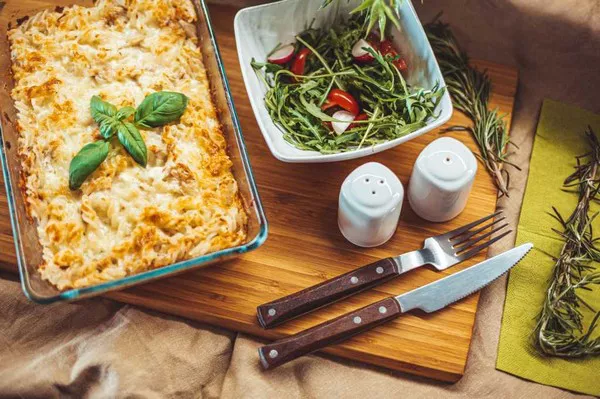In today’s fast-paced world, achieving weight loss within a limited timeframe has become a common goal for many individuals. If you’re looking to shed those extra pounds in just 30 days, the key lies not just in rigorous workouts but also in a carefully curated and nutritionally balanced diet. In this comprehensive guide, we’ll explore the best foods to incorporate into your daily meals to kickstart your weight loss journey effectively.
Embrace a Balanced Diet
Achieving weight loss in a short period requires a well-rounded approach to nutrition. Start by incorporating a balance of macronutrients – proteins, carbohydrates, and fats – into your meals. Opt for lean proteins like chicken, fish, and tofu, complex carbohydrates such as whole grains and vegetables, and healthy fats from sources like avocados and nuts.
Lean Proteins: Proteins are essential for muscle repair and satiety. Include lean proteins in every meal to promote a feeling of fullness and prevent overeating.
Complex Carbohydrates: Whole grains, legumes, and fibrous vegetables provide sustained energy, helping you stay active throughout the day while maintaining a calorie deficit.
Healthy Fats: Contrary to popular belief, incorporating healthy fats into your diet is crucial for weight loss. Avocados, nuts, and olive oil can aid in nutrient absorption and keep you feeling satisfied.
Prioritize Fiber-Rich Foods
Including fiber-rich foods in your diet is a game-changer when it comes to weight loss. Not only do they promote digestion and gut health, but they also contribute to a feeling of fullness, preventing unnecessary snacking.
Whole Grains: Opt for whole grains like brown rice, quinoa, and oats to increase your fiber intake. These grains release energy slowly, helping you stay energized throughout the day.
Fruits and Vegetables: Load your plate with colorful fruits and vegetables. They not only provide essential vitamins and minerals but also add bulk to your meals, making you feel more satisfied with fewer calories.
Legumes: Beans, lentils, and chickpeas are excellent sources of fiber and protein. Incorporate them into soups, salads, or main dishes for a nutritional boost.
Mindful Eating Habits
Beyond the types of food you consume, how you eat plays a crucial role in achieving your weight loss goals. Adopting mindful eating habits can significantly impact your success.
Portion Control: Be mindful of portion sizes. Use smaller plates to create the illusion of a fuller plate, and listen to your body’s hunger and fullness cues.
Slow Eating: Eating slowly allows your body to recognize when it’s full, reducing the likelihood of overeating. Put down your utensils between bites and savor each mouthful.
Hydration: Sometimes, our bodies mistake thirst for hunger. Stay hydrated throughout the day by drinking water, herbal teas, or infused water with slices of fruits.
Strategic Meal Planning
Planning your meals in advance can help you stay on track with your weight loss goals. By preparing nutritious meals and snacks, you reduce the temptation to reach for unhealthy options.
Batch Cooking: Spend time on weekends preparing batches of healthy meals that you can portion and freeze. This ensures you always have a nutritious option on hand, preventing impulsive, less healthy choices.
Snack Smart: Choose nutrient-dense snacks like Greek yogurt, raw vegetables with hummus, or a handful of nuts. Avoid processed snacks high in sugars and unhealthy fats.
Balanced Meals: Each meal should include a balance of proteins, carbohydrates, and fats. This combination provides sustained energy and helps control cravings.
Stay Active and Hydrated
While diet is a crucial component of weight loss, staying active and hydrated are equally important. Regular exercise helps burn calories, and proper hydration supports bodily functions and can prevent overeating.
Exercise Routine: Aim for at least 30 minutes of moderate-intensity exercise most days of the week. This could include brisk walking, jogging, cycling, or a combination of strength training and cardio exercises.
Hydration: Drinking an adequate amount of water not only supports overall health but can also aid in weight loss. Sometimes, our bodies confuse thirst with hunger, leading to unnecessary snacking.
In conclusion, achieving weight loss in 30 days requires a multifaceted approach that combines a balanced diet, mindful eating habits, strategic meal planning, regular physical activity, and proper hydration. By incorporating these elements into your daily routine, you can embark on a successful and sustainable weight loss journey. Remember, consult with a healthcare professional or nutritionist before making significant changes to your diet or exercise routine.
Related Links:
Optimal Post-Late Night Workout Nutrition: Fueling Your Body for Success
Unlock Your Post-Workout Potential with these Healthy Carbs
Fueling Weight Loss: A Comprehensive Guide on What to Eat to Stay Full and Shed Pounds


